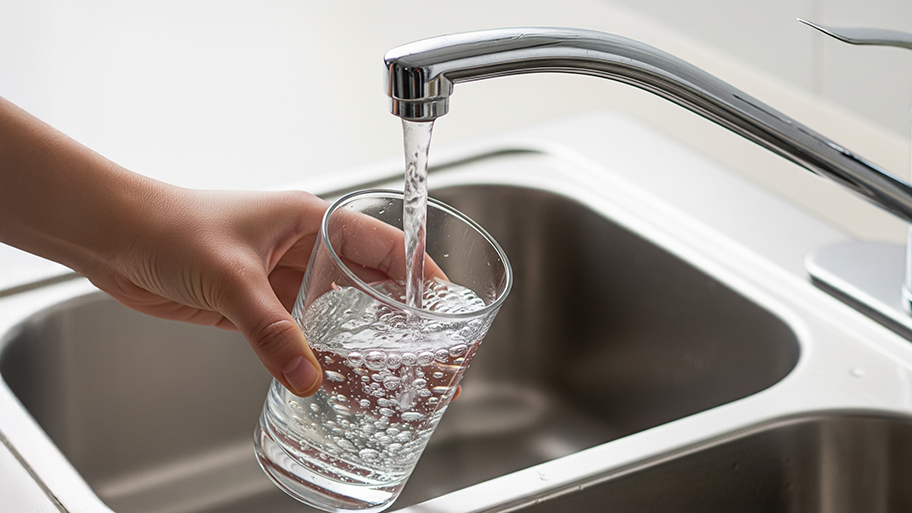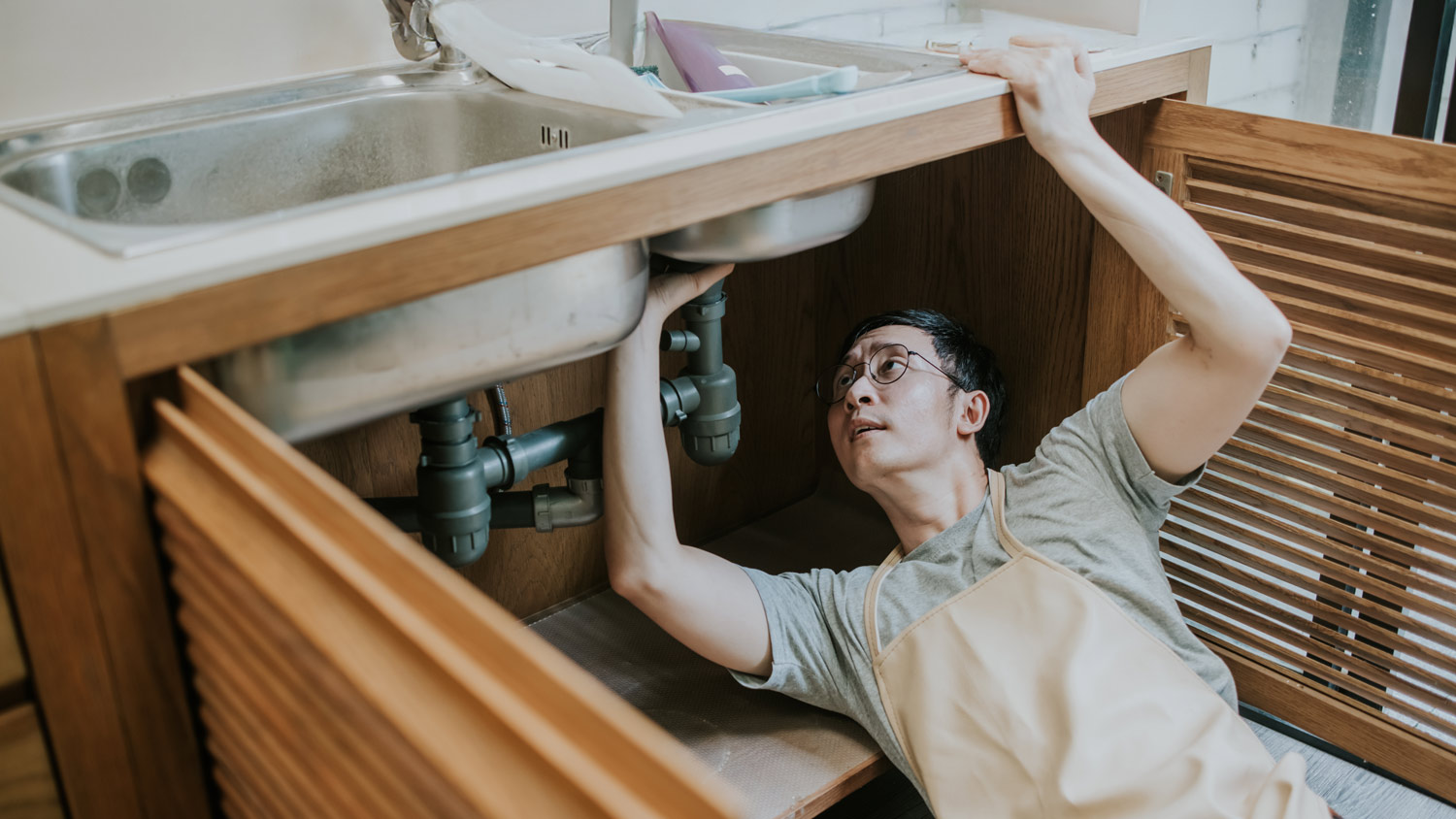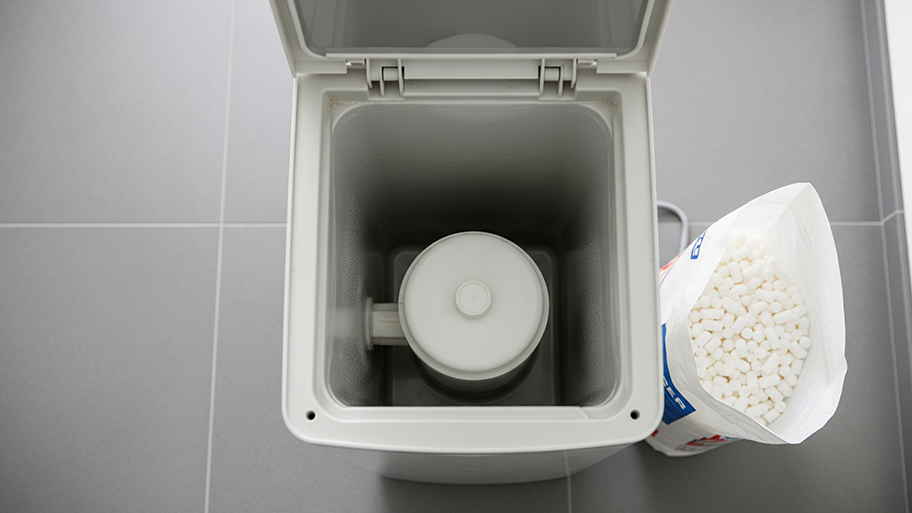
On average, a reverse osmosis water filter costs around $2,200, but there are a few variables that impact the total price. Learn about them in this guide.
Water softeners go to to work while you go to bed


Treating hard water is a continual process—for your water softener, that is. Most water softeners have a full-time, third shift job. Their main task? Regenerating and removing hard minerals from your water every night. The regeneration cycle is critical for maintaining your plumbing system and your water quality. Let’s break down how it works and all the good things the softener system is doing for your water.
Water softeners are installed in homes to remove minerals like calcium and magnesium (to name a few) from so-called hard water. They transform your water using a filter exchange process and redirect the hard mineral waste down your drain.
Water softeners are an essential home appliance for homeowners plagued by hard water. That said, not many fully understand what they do, how they do it, and why having one in your home is essential if you have hard water.
Each water softener contains resin beads which trap all the hard water-generating minerals and replace them with softer ones like potassium. This replacement process is also known as an exchange and gives water softeners their other name, ion exchange units.
Hard water won’t negatively affect your health, but you don’t want it running through your pipes. The minerals found in hard water will leave behind serious residue, which can build up in your pipes, decrease water pressure, and clog your system.
Hard water doesn’t play nice with soap or shampoo either. The minerals prevent soap from dissolving and leave behind a film on your body. If you have sensitive skin, the residue can make you feel itchy and exacerbate skin issues. Your skin, your clothes, and your dishes will all benefit from a water softener.
If you think your home might benefit from softer water, read on to understand how the regeneration cycle works.

Resin beads inside the softener trap the calcium and magnesium present in your drinking water and exchange them for sodium or potassium (soft water minerals). A highly-concentrated salt solution flushes the beads clean as the resins trap byproducts. After passing through the beads, the resulting chloride solution waste flows out of your drains leaving softer water behind.
The average water softener regeneration cycle runs between one and a half to two hours. During this automatic cycle, you should try to avoid using your water. If you do, the hard water (and the corresponding buildup) could start to fill your water heater and ironically render the softener useless.
Since we tend to use water during our waking hours, most water softener regeneration cycles are pre-programmed to run at about 2 a.m. when fewer people are awake and less likely to use the water. Night owls or late-night shift workers aren’t out of luck, though. You can adjust the cycle’s run time to fit your schedule.
Most water softeners have a reserve capacity to keep you in soft water, though the limit will vary according to the type of unit you own.
There is no requirement to soften your water, and the decision is simply a personal choice. If a hard water test shows your water hardness is greater than 7 grains per gallon or 120 mg/L, you might need a water softener to ensure your appliances run well and improve the taste, smell, or look of your water. Some other advantages to water softeners include:
Prevents buildup of minerals (scale) in your pipes, fixtures, and water heaters
Lengthens the life of some appliances
Increases water pressure
Reduces or prevents mineral spots on glassware
Increases the effectiveness of soaps and detergents
Prevents or reduces soap films in sinks, bathtubs, and washing machines
If you notice higher energy bills, decreased water pressure, or film on your skin and glassware, these could be signs that your water softener needs maintenance or repair.
From average costs to expert advice, get all the answers you need to get your job done.

On average, a reverse osmosis water filter costs around $2,200, but there are a few variables that impact the total price. Learn about them in this guide.

Wondering about water treatment system costs? Learn average prices, key cost factors, and ways to save on installation and maintenance for your home.

Your cost to install an under-sink water filter will depend on the type and size of system you choose and whether you need professional installation.

No one likes that white buildup in the shower and on their cookware. Will a whole-house water filter remove the scale? We'll show you what to expect.

Water softeners remove minerals from hard water in your home and make your water more pleasant to use. Learn more about how they work here.

If your water softener is constantly draining, you may have a stuck valve, old seals, or electrical issues. Explore more common problems and solutions here.